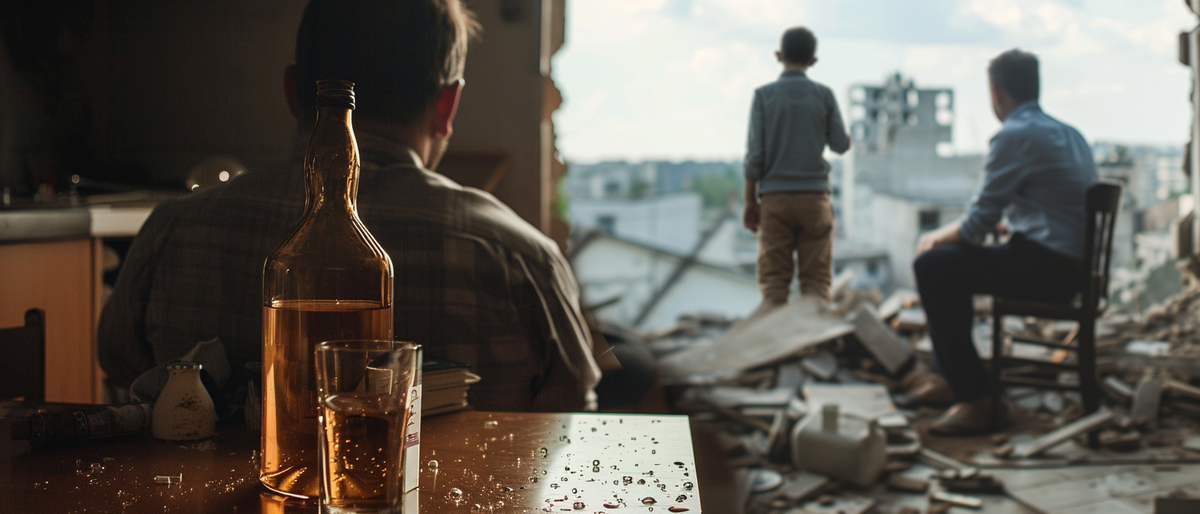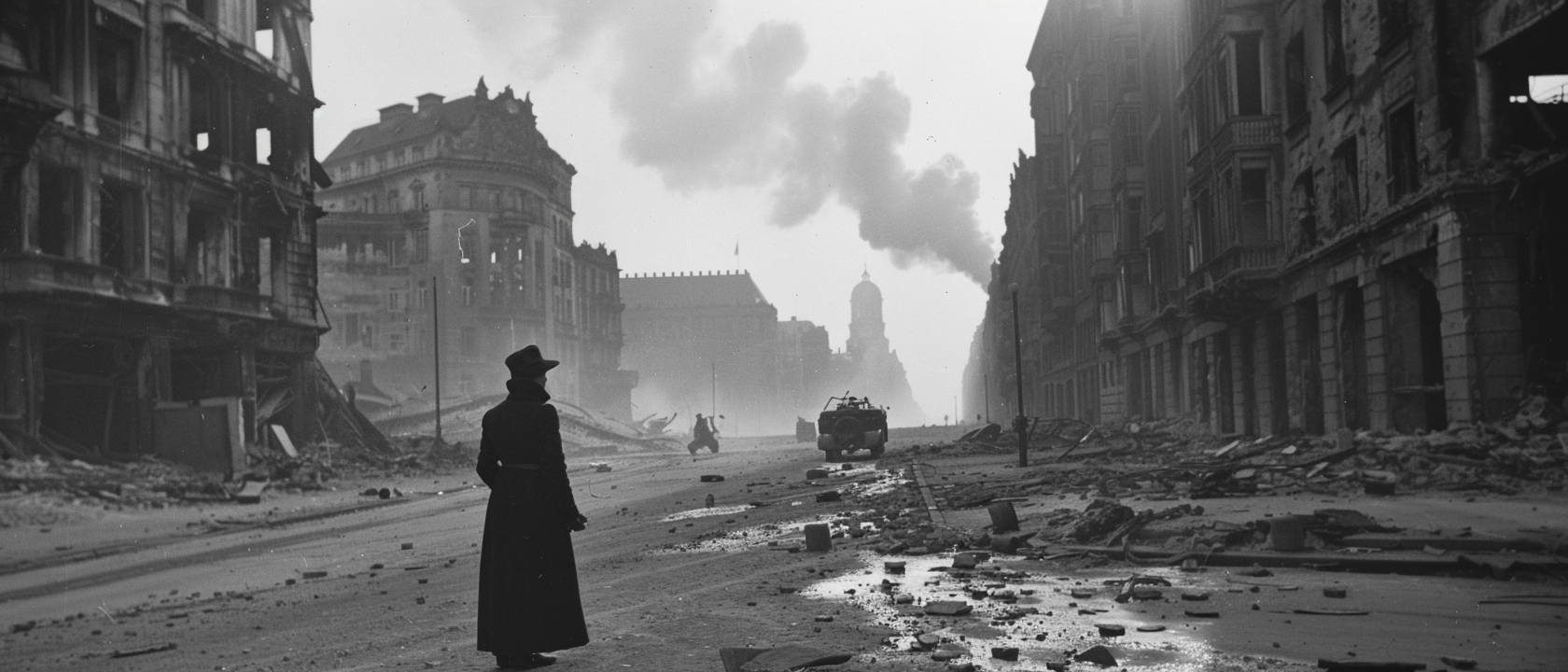Booze and War

Last Friday, April 26, I “celebrated” six years of sobriety from a condition known as “Alcoholism.” This was a distinction for me, an “anniversary” given that I had spent the previous sixty (60) years drinking nearly every day or night, or whenever I could. I was, or am still, an “alcoholic,” with all that that implies. I am now 84 and I stopped drinking when I was 78. Does that make me an “ex-alcoholic” or am I one that has only stopped the symptoms of the “disease”?
Once an Alcoholic always an Alcoholic?
Or, to cite the obvious, what took me so long?
The previous paragraphs were deliberate, as I still don’t know, in the true or “technical” sense of the word, what I “was” or had “become.”
As a Professor of History since 1966, specifically of “International Relations,” I had tried to avoid the classification of “isms” as descriptions of human behavior. This, I used to think, was a shortsighted definition of humanity, summarizing human behavior as derivative from a set of “ideologies,” convenient to the observer but too “simple” for full explanations of life. In short, was Stalin a Communist or a Russian in taking over Eastern Europe? Did Marxism require the occupation of Poland? Was President James Polk serving Democracy or Imperialism when he took over half of Mexico in 1848?
The list is endless.
I’m on record, with other articles, critiquing those contemporary politicians, including President Biden himself, when they describe the opposition as a bunch of “Fascists.” Hitler’s dead, but War, Politics and Diplomacy still exist, since the beginning of time.
Enough Politics. Now the “Disease”?
While I was “Alcoholic” did that “supervise” my overall behavior? I was also many other things, a Catholic, a teacher, an athlete (somewhat), a scholar (again), young, old, husband, father, Republican, historian, conservative etc.
Was there an “ism” that fit all these other categories or was Alcoholism the only one? Wasn’t I “something else”?
Aside from the “stereotype” I seemed to lead a somewhat “normal” life. I didn’t murder anyone, rob a bank, scream at people, go away for periods of time or lived under a bridge. I got an education, had several careers, married, raised a family, got divorced, maintained cordial relations with children and ex-wife, got “old” and, aside from that, stopped drinking.
I played Sports, baseball, football, basketball, was an amateur boxer, played rugby, golf, tennis and went fishing. I also served as staff for six years in the US Congress and spent twelve years in the State Department. I’ve written or edited several books, plus over 300 articles (including this).
What role did Alcohol play in this life?
Nobody sent any of this material back with the explanation “intoxicated” attached.
Not once, in all my “mini-careers,” did anyone suggest that I stop being an “Alcoholic,” or even hint that Drink was ruining with my life. Nor did I ever think so.
It was said occasionally that I “drank” too much at parties but that was both universal in scope and behavior. In other words I wasn’t the “only one.” I also had my share of “Blackouts” but, somehow, I dismissed them. All this was both temporary and, for me, collective and universal.
I was doing nothing separate and distinct from everyone I knew or came across (details upon request).
Why did I stop? The true answer is IDK, for certain. I can offer “interpretations” or “explanations” but technically I am still going “one day at a time.” I think that “clarity” is the ultimate reason. I feel better, wake-up sober and ready-to-go, remember things better but, after all is said-and-done, “life goes-on.” Sober not Drunk. Life sober is much better.
In my teaching I have often compared Warfare, the central focus of my intellectual life, as “comparable” to Alcoholism, the central focus of my social life.
In my teaching I have often compared Warfare, the central focus of my intellectual life, as “comparable” to Alcoholism, the central focus of my social life. I have never served in the military but that didn’t matter. The best novel on the American Civil War was written by Steven Crane. The best set of descriptions were written by Bruce Catton, James McPherson and Shelby Foote, all these authors born long-after the Civil War. One of my books, Chasing Ghosts (2006) traced Guerrilla War in American History. I have never been a “Guerrilla.”
I still recall in the 1980’s drinking beer night-after-night in his McLean house with retired General Edward Lansdale, who almost-by-himself ended the guerrilla uprising by a Communist movement in The Philippines, 1950’s. Lansdale had the full cooperation of the local government and accomplished this without a single American military casualty. In our school this summer we are preparing a tribute to Ed and his legacy, this time without beer.
My appreciation of War was similar to Alcoholism, especially the question “why.” The great “Questions” in life all begin with the letter “W,” who, what, where, when. These four can be dismissed in minutes, if not seconds. The fifth W, “why” may take years if not centuries of debate and discussion, all without consensus. And like with Alcoholism, Historians are still debating the causes of War, be it the Civil War, World Wars or the Peloponnesian War, four centuries before Christ.
Now we have still other Wars to contemplate, Ukraine, Gaza, possibly Taiwan, thousands of years after Sparta confronted Athens. Like War, Alcohol continues as if nothing happened. Jesus making wine from water is still prominent in The Bible.
Why is War, like Alcoholism, so dominant and pervasive in life? Its repetition belies its actual behavior. There is little, or nothing, “glamorous” or “attractive” about bombing cities or infantry attacks. Yet Wars are universally accompanied by songs, parades or memorials, ad infinitum. Perhaps the soldier, with enduring and exciting bravery and courage, involves aspects of life not found in a bedroom holed up with only a bottle for comfort.

Yet the American Democracy, for one, has attempted to put an end to both human behaviors. Take the period after World War I, 1918-1939, for example. The American President (Woodrow Wilson) promised an end to War through a “League of Nations.” He also connected Warfare with an ideology, “to make the world safe for Democracy.” Later, another Administration (Calvin Coolidge) advanced a universal Peace Treaty, “Pact of Paris,” with the expressed intention to “outlaw” War “as an instrument of national policy.” The Treaty was initially signed by 62 nations including Germany, Italy and Japan, the “Axis” that later began History’s greatest war. The Pact of Paris, outlawing War, is technically still in effect, the last to adhere being Croatia in 1994.
Like Alcohol under Prohibition, every time we go to War it’s “illegal.” So far, no country has been arrested.
At the same time-period the US “outlawed” Alcohol, with the Volstead Act, 1919, which prohibited the use, production, and sale of alcohol. In 1933 Utah finally ratified the Twenty-first Amendment, abolishing the Volstead Act, after nearly fifteen years in which Alcohol, unique among all other countries, was illegal in the USA.
Just as the Pact of Paris never eliminated War so, too, did Prohibition never outlaw Alcohol. The most important effect of Prohibition were probably “speakeasies” and Al Capone. The New Deal and the end of Prohibition were both accompanied by the famous song, “Happy Days Are Here Again,” a song celebrated subsequently in over 80 motion pictures.
Despite their repetition in History neither War nor Alcohol could finally be abolished in America, the si Democracy in the world who did its best to “outlaw” both. As we have seen both aspects of life are still in daily use throughout the political globe, with definitions that reflect both their repetition and domination within Global Society: “World,” “Cold” and more recently “Endless” War.
Alcoholism, true to its purpose and “faceless” behavior, would prefer to justify its existence, at least formally, with the adjective “Anonymous.” By comparison, military uniforms are universally “distinguished,” reflecting “service.”
There are, theoretically, at least three “instructions” or philosophies to determine the causation of both War and Alcoholism. The first is Biology, inherited “disease” over which we have no control. Next is Psychology, where the individual is fully responsible and has “character defects.” Third is Sociology, where culture dominates by controlling group behavior (“Drunken Irish”). All three are undoubtedly responsible for human behavior in almost every manifestation but I prefer “Sociology” since my own drinking years were seemingly accompanied by my close associations, family, friends. (I am also Irish, but compared to Russians, Germans, French and Italians we’re not so bad).
I once asked my class what causes incessant War in human behavior. They answered almost unanimously “Mankind’s Nature.” I followed-up with a second question, what causes “Peace”? The class responded with the same answer.
In Alcoholism the identical “duality” dominates. “Recovery” from Alcoholism requires “intervention” from a “Higher Power” while the “disease” is exclusively Human. Life under Alcoholism becomes “unmanageable” while War still, centuries later, controls behavior between human “nation-states.” War itself, can be both “scientific” and “managed,” but it arrives when everything goes “out of control.”
I still cannot accept either one of these behavior patterns as either “evil,” “immoral” or “sinister.” Whether by staggering home, slurring your words or killing someone on the other side of the river.
In the final analysis, we are all products of the Creator.
Together, it appears, that we are responsible collectively for our bad behavior while God alone is responsible for recovery.
Together, it appears, that we are responsible collectively for our bad behavior while God alone is responsible for recovery. Why can’t God be responsible for all the behavior of those whom HE created: War/Peace, Alcoholism/Recovery?
When the same answer defines opposite behaviors you conclude with the “best of all worlds,” IE. everything … and nothing.
Conclusion
The best book (for me) on the causation of War was by the late Kenneth Waltz, Man, the State, and War (1959). Waltz analyzed three “causes” of incessant Warfare between states as, in order, Man’s “nature,” the political nature of the separate states, and the “anarchy” of the International System itself. He concluded, pessimistically, that the best hope for perpetual peace lie within the creation of an international order governed by a single system.
A creative set of books on the several causes of Alcoholism were written by Joseph F. Perez, who diagnosed the causation close to the three categories mentioned earlier in this essay. The single book on recovery, known universally as the “Big Book,” remains Alcoholics Anonymous, a volume on recovery written by Dr. Bob Smith and Bill Wilson in 1939. This book, named by the Library of Congress as one of the top 100 books in US History, remains the single most-popular book on Human Recovery and is used in 180 countries and in a variety of languages.
Nevertheless, as my own experience demonstrates and as tomorrow’s newspaper will confirm, both War and Alcoholism are permanent behavioral aspects of what might be called “the Human Condition.”
On a personal note, my own behavior shows that “it is never too late.”
On a “theoretical” note God made fish to swim, birds to fly and mankind to drink and fight.
Prosecution Rests.